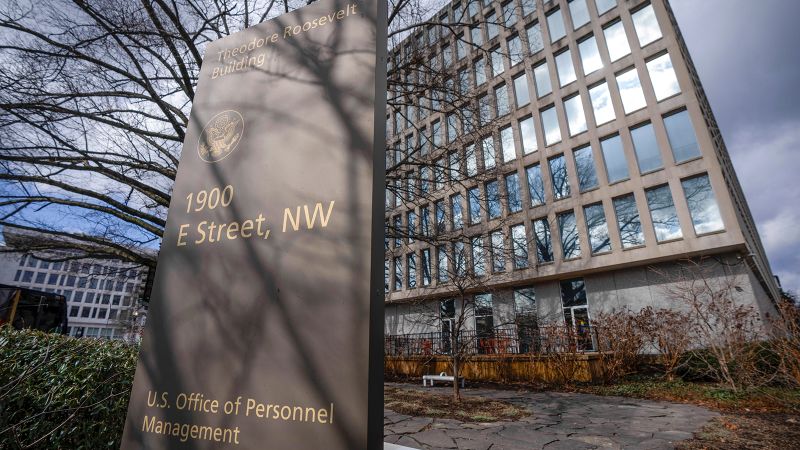In a shocking development, the US government is facing legal action after mass emails reportedly sent to the federal workforce were allegedly routed through an insecure server, raising significant concerns about the security of sensitive communications. The lawsuit, filed by a group of federal employees, claims the breach not only violated privacy protections but also exposed potentially millions of workers to phishing attacks and other cyber threats.
A “Serious Breach of Trust”
The case, filed in the Southern District of New York, alleges that the federal government failed to adequately secure the server that sent the mass emails to its workforce. According to the plaintiffs, the emails, which were sent as part of routine government notifications and updates, originated from an unencrypted server with known vulnerabilities. This left the emails open to interception and manipulation by malicious actors.
“It’s a serious breach of trust,” said Rebecca Turner, one of the attorneys representing the plaintiffs. “The government holds massive amounts of personal and professional data on federal employees. To allow that data to be exposed through an unsecured server is not just negligent—it’s reckless.”
The emails in question, which were distributed to tens of thousands of federal employees, contained sensitive information about workplace policies, new regulations, and upcoming mandatory compliance training. Though the emails themselves were not believed to contain direct personal information, their insecure routing created an opening for cybercriminals to intercept the data or use the correspondence as a vehicle for further attacks.
The Alleged Vulnerabilities
At the heart of the lawsuit is the claim that the government’s email system was operating with outdated and improperly configured software. According to cybersecurity experts, sending mass emails through such a system creates several vulnerabilities. These include a risk of “spoofing,” where attackers can impersonate government agencies to send fake messages, or “man-in-the-middle” attacks, where communications can be intercepted or altered without the sender or recipient knowing.

“This wasn’t just a small glitch,” said Peter Cho, a cybersecurity consultant with experience in government IT systems. “It was a fundamental security failure. In today’s digital age, routing sensitive communications over unprotected servers is a huge red flag. If this issue is as widespread as the lawsuit suggests, the consequences could be far-reaching.”
The Impact on Federal Employees
The plaintiffs in the case argue that the mass emails exposed federal workers to an increased risk of phishing scams, identity theft, and other cyber threats. Some of the plaintiffs have reported receiving follow-up emails from apparent scammers who used the government email as a launching point for fraudulent schemes.
“I received emails almost immediately after the government email went out,” said one federal employee, who wished to remain anonymous. “They were from a phishing email that looked almost identical to the official government email. I’m not sure how many people fell for it, but it’s scary to think about the potential damage this could cause.”
The suit also claims that the government failed to notify employees of the potential breach in a timely manner, causing unnecessary stress and confusion among federal workers.
Government’s Response
In response to the lawsuit, a spokesperson for the Office of Management and Budget (OMB), which oversees federal IT infrastructure, declined to comment on the pending litigation but assured that “steps are being taken to address and correct any security vulnerabilities.”
“We take the security of our federal workforce seriously, and while we cannot comment on the specifics of this case, we are committed to ensuring that our systems meet the highest standards of protection,” the spokesperson said.
Cybersecurity experts, however, have raised doubts about the speed and effectiveness of the government’s response. Many point to the long-standing issues with federal cybersecurity, including persistent vulnerabilities in federal systems that have been documented over the years. A 2023 audit by the Government Accountability Office (GAO) found that many federal agencies were still using outdated security software, despite repeated warnings.
Legal Precedents and Implications
This lawsuit could have far-reaching implications for how the federal government handles cybersecurity moving forward. In recent years, there has been a growing push for stronger regulations and better enforcement of security practices within government agencies. The outcome of this case may prompt further scrutiny of federal IT infrastructure and could lead to new legislative efforts to bolster protections against cyber threats.

“This case is an important test for the government’s accountability in cybersecurity,” said Dr. Maria Benson, a professor of cybersecurity law at Georgetown University. “If this lawsuit succeeds, it could set a precedent for holding federal agencies more accountable for the security of their digital communications.”
A Growing Concern
The increasing frequency of cyberattacks on government agencies, both domestic and international, has highlighted the vulnerabilities in the federal digital infrastructure. The alleged breach involving the insecure email server is just the latest in a series of incidents that have raised alarms about the government’s ability to protect sensitive information.
As the lawsuit moves forward, federal employees and cybersecurity advocates alike will be watching closely to see how the courts handle the case and what steps the government will take to prevent similar incidents in the future.
For now, federal employees remain on edge, with many questioning whether their personal and professional data is truly safe in the hands of the government.












